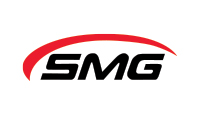We manage energy project development, environmental permitting, remediation and compliance, insustrial hygiene, health & safety, auditing, environmental management, government relations. We solve your problems in all of these areas. We move quickly and dig deeply to reach your goals. We work wherever you are.
How can SMG help you?
SMG POV
Last week, I joined telecommunication industry leaders, suppliers, and contractors in Nashville to discuss the state of the wireless telecommunication industry. While much of the discussion centered on carrier spending projections for 2015, the focus shifted to the future build out and current struggles of small cell deployment. It appears that future wireless build-outs will be more complex and more comprehensive as carriers look to add towers, but effectively fill in coverage gaps with small cells.
Interestingly, the FCC recently clarified that collocations on existing utility structures, like telephone poles, are not subject to historical review when older than 45 years and outside a historic district (FCC 14-153 para. 90). Additionally, the FCC ruled that the modification of “base stations’ like small cell equipment (FCC14-153, para. 172) must be approved by State and local government if the dimensions are not changed (FCC 14-153, Section V). While some municipalities are suing the FCC over this interpretation, it is clear that the FCC’s push for small cell deployment is in line with the carriers.
If you have any questions about how the FCC’s ruling might affect your project, please contact me at Josiahf@smithmanage.com.
FEATURED PROJECT
PROBLEM
A local company engaged in manufacturing imported a small amount of a chemical substance defined under TSCA. Faced with a potential EPA enforcement action with penalties assessed for noncompliance under TSCA of up to $32,500 per day per violation, the company called SMG for help.
SMG'S APPROACH
SMG analyzed the company’s current TSCA procedures and assisted the company in developing a proactive, cost-effective compliance procedure. SMG also facilitated a training program to educate employees about TSCA.
MG worked with the company to develop mechanisms that assured adherence with the policies that were being implemented for compliance. Procedures to promptly correct any potential violations and prevent future violations were also put into place.
RESULTS
SMG was able to show that the company complied with the relevant TSCA regulations and was improving their TSCA policies and procedures to assure that future issues were less likely to occur. The company was not subjected to the proposed penalties and now has mechanisms in place to maintain TSCA compliance.
